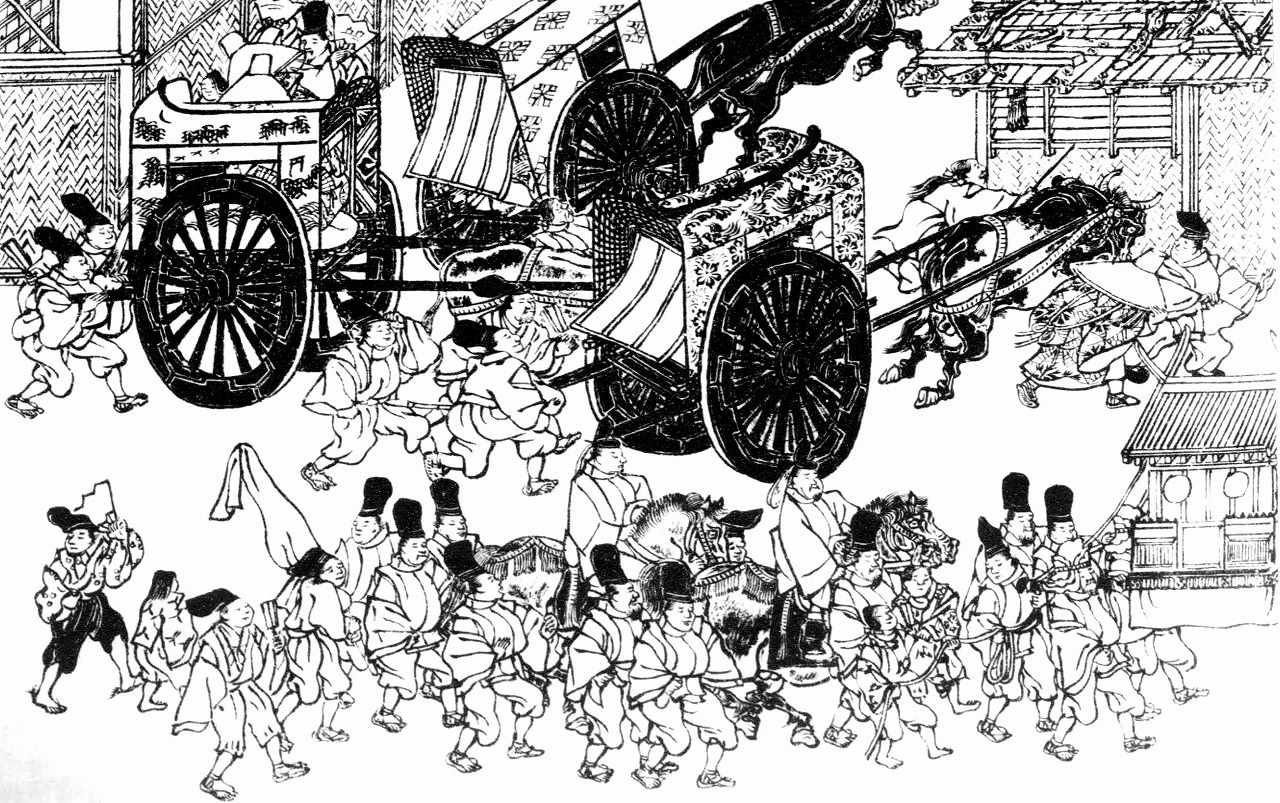Perhaps the strangest artifact of the present I’ve seen is a viral Instagram screed titled Why The Refusal To Post Online Is Often Inherently Racist. There’s no point identifying the author; it might as well have been written by the platform itself. Silence is no longer the foundation of creativity. Digital systems can’t compute an absence; if you refuse to speak, you’re complicit. Post more, feed us more, empty yourself into the internet—or you’re a racist. My old university in Yorkshire has made an Instagram post in support of Black Lives Matter. So has the supermarket down the road. So has my bank (many of the comments were from black people wondering whether this commitment to racial equality might mean that some of their loan applications might actually be approved).
For a sector of activists, these posts are absolutely mandatory. The Los Angeles Times reports, with gushing praise, on a woman circulating a list of theatres—as in, the buildings where they do plays, with lights, curtains, and very small tubs of ice cream and so on, which, incidentally, have all been shut for three months now due to the global pandemic—that have not made posts online in support of the movement. The threat is implied.
Posting has become a moral and political duty, a barometer of individual worth, an almost instinctive activity.
There’s an urgent question here. Do we really want to be pandered to? If all these structures are suddenly pledging their commitment to a (purportedly) revolutionary ideology, does that mean we’ve won—or does it mean we’re facilitating its recuperation into a new court ideology for the ruling class? Do we really want all mainstream institutions to turn themselves into progressive institutions? As far as I’m concerned, the only dignified answer is a loud, instinctual no. But that’s not really what I want to talk about, at least for the moment. It’s the other question. Posting has become a moral and political duty, a barometer of individual worth, an almost instinctive activity. I’m doing it right now—but what actually is it? What are we really doing when we post online?
You could define posting as the act of releasing official statements to the public. For most ordinary people this kind of public relations is, of course, an utterly deranged thing to be doing, but it doesn’t stop anyone. In the early days of social media, these official statements were usually along the lines of “just had a lovely cup of #tea,” and everyone agreed they were pointless; now they’re more like “I unequivocally condemn #racism,” and if you don’t think they’re the most important thing in the world, you’ll be ejected from polite society. But their form is unchanged. The most important quality of the post is that it isn’t directed to anyone in particular. The poster isn’t the equivalent of having a conversation, but of standing on a hilltop just outside town and screaming at the top of their lungs. Posts are directed to your friends or followers as a whole, to the social media platform itself, to the Big Other, to the machine, to the vast alien entity on the other side of the screen. They are not, strictly speaking, for any human ears.
Why do you do this? You post because you think it can bring you something. The platforms themselves promise that posting will give you a sense of community, that it will bring you closer to like-minded people. A synonym for post, one the tech companies seem to favour, is share. But posting also brings you attention. Conspicuous social media use makes people look at you, and you imagine that they might look at you with admiration. (Twat, they think, what an absolute wanker.) If you’re bold enough to dream, you could even imagine your posts getting so much attention that you end up becoming an influencer, someone who does nothing in life but shout from that lonely hilltop. This is the greatest and most beautiful thing we are told to imagine.
But in posting, we give far more than we get. We produce posts, and the machine consumes them. It eats our thoughts and dreams and sentiments. It feeds on our data, our time, and our attention. In return, we get a measurable decline in mental wellbeing. This is fine too; unhappy people are often compulsive posters. The system gorges itself indifferently. Our misery is also food. It has some use for our posts that we can only vaguely glimpse at. It translates them into profits, yes, but also knowledge about us, and power to dispose of us. For what purpose? Well.
In 2014, artist Laurel Ptak published a manifesto titled Wages For Facebook, taking a cue from Silvia Federici’s Wages Against Housework campaign of the 1970s. When we post online, she argues, we are engaged in unwaged labor: we’re generating profits for the tech companies, and we are not compensated. Our opinions and emotions have all been distorted for a specific function online, and then have been thrown back at us as a model to which we should all conform if we want to be accepted in this society. Our fingertips have become distorted from so much liking, our feelings have gotten lost from so many friendships. This is a significant insight: posting is something deeply familiar, an activity people have been engaged in for a long time, just in a new form. We just mistook what that something might be; the bulk of the twentieth century stood in the way. And posting is much, much older than that.
Imagine trying to explain social media to, say, a Roman of the first century BCE, a Greek of the classical period, a Vedic-era Indian, an Israelite in the time of the First Temple, or an Aztec nobleman living just before smallpox and Spaniards reached their shores. We have this thing, you’d tell them. It is:
- An enforced social ritual…
- …in which we try to do good, or maintain the right order of the world…
- …while forming communities with other people…
- …and increasing our personal prestige…
- …by giving something of ourselves over…
- …to be eaten by a vast non-human entity…
- …that sees and comprehends everything we do.
Would the ancients be amazed by our technological powers? More likely, your interlocutor would shrug. So? We’ve got one of those too. And they would show you a temple, a large stone block dripping with blood. And in a pit, black with ashes, the victim’s bones.
Posting is not labor. Posting is sacrifice. Everything we do has been done before. The preening Roman statesman, leading a dozen fattened kids to the slaughter, all groomed and garlanded in flowers, so the world will see and appreciate his wealth. The citizens of the polis, consuming the sacrificed bull together around the fire. The high priest, the person whose job it is to make offerings, whose robes must always be clean, who must always be pure, who alone gets to stand in the Holy of Holies. And the Aztec women, dancing happily, willingly, as the warriors approach to club them all to death.
What is stunning about the present moment is how quickly the movement has been hollowed out, eaten away from the inside by a logic of sacrifice. Even while thousands of people are still on the streets, putting themselves on the line against a roided-up, pig-faced police state, a parallel movement within the institutions is using the demand for justice as cover for petty professional power struggles. You people don’t deserve a riot! Look how you’ve squandered it! In newspapers, in universities, in the organs of culture: seize the scapegoat, grab them by the neck, drag them to the altar. A private citizen, an honest-to-God nobody, was the subject of a 3000-word media inquisition. A former Disney star has dedicated herself to imposing devastating punitive consequences on children—actual children—who say or do the wrong things. (For this, she’s lauded by magazines for people in their mid-thirties.) It’s not about a better world; it’s about posting. Righteous posts, well-ordered sacrifices, must crowd out the bad.
This is all very stupid, but it opens up an interesting question. What happens when the god rejects the sacrifice? The great contemporary thinker of sacrifice is French philosopher and sociologist René Girard, who theorizes it as the endpoint of mimetic rivalry. Two people want the same thing, they learn what and how to want by watching each other, and eventually, this competition brings tensions to an unbearable pitch. At this point, an arbitrary scapegoat is identified, made into the locus of all antagonisms, and either exiled or destroyed. Then, the survivors can live in peace with one another. But despite his own personal Catholicism, Girard sees sacrifice socially, and only socially; there’s no vast non-human entity to actually receive the offering. For Girard, to read sacrifice in terms of a “non-existent deity” leads to “a formalistic critical approach that would in no way further our understanding.” But this entity does exist. Without it, things get muddled. In Genesis, Cain and Abel make their sacrifices first. One is accepted. One is not. Only then does the cycle of mimetic rivalry start to spin into gear. A sacrifice that might be rejected isn’t the cathartic end to social antagonisms; it can be what kicks them off.
Earlier this month, the Poetry Foundation—a plutocratic, money-laundering operation based in Chicago—correctly observed the ritual by making a short statement in support of the George Floyd protests and against systemic racism. It was not accepted. Instead, a maniacal open letter was written in response, accusing the foundation of racial violence and demanding that it stop funding poetry and transform itself into a social justice advocacy organization instead. As it happens, I actually agree when the signatories say they “dream of a world in which the massive wealth hoarding that underlies the Foundation’s work would be replaced by the redistribution of every cent”—but until that day, the one thing rich people have shown themselves to be good for is funding the arts. Much better to have billionaire patrons for our poetry than our politics (it’s also hard to take this utopian intent seriously when it’s delivered as part of an obvious grab for resources and position within the system of capital accumulation). This letter was signed by seemingly everyone who ever took money from the foundation. I doubt many of them actually agreed with it—but if you’ve been funded by what’s turned out to be a Bad Racist Institution, what choice do you have? Unless you want to be complicit, you have to denounce the hand that feeds you.
In any event, the foundation released a second statement, pleading its “deep gratitude and reverence” for the assembled sadists and psychopaths, and offering the heads of its president and board chairman as an additional offering. These two men were, to be clear, a pair of deeply creepy CIA/finance capital apparatchiks—but that only makes things more troubling. Why are they suddenly so happy to offer themselves up? Can you really make the deep state roll over and play dead with an angry open letter? Or is this, in some sense, part of the program?
There’s a certain type of leftist that gets deeply uncomfortable whenever you bring up this type of topic. Why are you bothering yourself with this stuff, they’ll say, when the Real Problems are so much worse? Aren’t you embarrassed to be delivering tirades against “cancel culture,” just like all the icky conservatives out there? The people we keep trying to destroy—aren’t they all basically fine? Isn’t it a non-issue? Aren’t there more appropriate victims to feel bad for? Some of them will even protest until they’re red in the face that this thing simply doesn’t exist. (You should be very wary of this last kind. Like all denialists, they doubt the kind of thing they’d like to inflict.) And of course, the police murder of black people is far more serious than petty institutional struggles. The problem is that these things aren’t opposed to each other. They’re a product of precisely the same diseased social machine.
There’s a sector of Black Lives Matter’s intellectual stratum that’s always been suspicious of any attempt to describe current inequalities in strictly Marxian terms—by talking only about class, labor, the wage relation, surplus value, and so on. In a sense, they’re not wrong. Black Americans spent the first two-thirds of the twentieth century migrating en masse from the rural South to the industrial cities, fighting tooth and nail for equal participation in the democratic process, the workforce, and in labor unions. And this struggle really did start to bear fruit—just in time for the rise of neoliberalism and the deindustrialization of the American economy. All those good factory jobs vanished into the air as soon as black hands came near them. During the Great Migration, the racist, white power structure in the South suddenly had to confront the fact that it needed black people as a labor force. In a way, it was a small monster—brutal, deadly, but parochial; sustained by human prejudice. This new monster was sublimely indifferent and world-spanning in its scope, and it simply had no use for black Americans at all.
This might be why contemporary movements for racial justice have tended not to focus on jobs or housing or any other immediate political issue, but on the category of life. Life is what’s on the line. From the perspective of capital, millions of black Americans are a surplus population. This shift is altogether different from the production of a relative surplus population described by Marx in chapter twenty-five of Capital, which serves as “the lever of capitalistic accumulation.” Unemployment among black Americans does nothing to increase the rate of exploitation in sweatshops in Malaysia or Vietnam. They are simply living human beings in a world that puts no value on any of its creatures. One of the major responses on the part of power has been to simply silo this population: via mass incarceration, the surplus is moved behind bars where it can be monitored. But there are other tools.
In The Accursed Share, Georges Bataille describes life in general as something constantly overflowing itself: “a wild exuberance, the production of increasingly burdensome forms.” This creates dangerous surpluses. When life cannot be usefully consumed—through labor—it is squandered extravagantly. Potlatch, revolution, or sacrifice. Police murder – and in particular the spectacle of police murder, the horrifying videos posted online and spreading across the world—is a sacrifice. To capital, to the dispossessive state, to the discourse-machine. The cops might as well be armed with obsidian daggers.
(It’s worth noting, in this context, that it’s been very difficult to develop an autonomous Black Lives Matter movement in the U.K., where we still mostly take our cues from events in America. It’s not that our police don’t murder people—they just tend to do it behind closed doors, where there will be no footage.)
What’s called “cancel culture” is just the cultural expression of this shift in the economy. It’s not an overcorrection. It’s not a movement for justice going too far. It’s another fragment of the same thing that we all ought to be fighting against. Yes, it’s in a far weaker and less deadly form, but the ideological content is the same. It says: nobody is irreplaceable. Everyone is disposable. Anyone can be sacrificed in an instant. Guilt or innocence are unimportant. No life matters.









